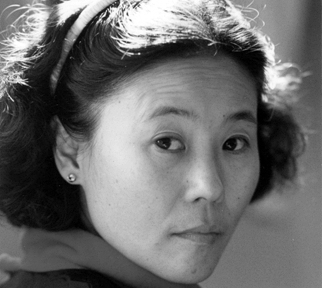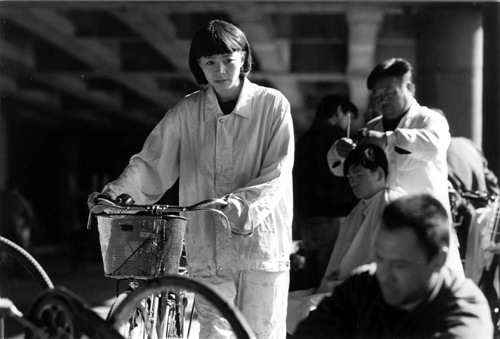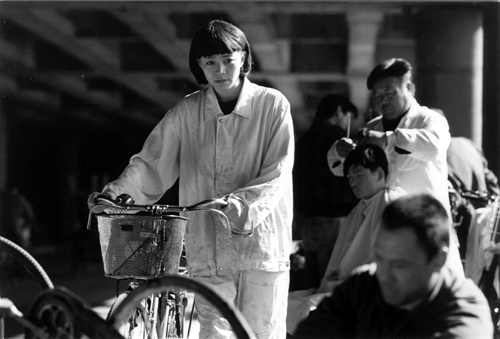2nd(1999)
Red Suit
Li Shao Hong
- China
- 1998
- 100min
- 35mm
- color
SYNOPSIS
Under the Chinese Socialist Planned Economy, the livelihood and employment of the people were provided by the State. However the new ethics introduced with the entrance of a new open-door policy and 80s reform challenged the sovereignty of these outdated values. Red Suit portrays the disintegration of the lives of those who are unable to deal with the conflicts that rise from the struggle between the new and the old, and the anguish that derives from such state of instability. Iron factory worker, Liu Shijie considers “serving the people” as the highest value in the world. He has been respected by his co-workers as a model worker, yet he ends up losing his job when the factory goes through difficulty. With his pride hurt, he keeps this from his family and roams around to earn money. He pokes around gambling houses and works in hotel restrooms, but still finds it difficult to accept this reality. His wife, Hongguang finally acknowledges her husband’s fall when she scours the city, looking for him, and finds him fixing bicycles on the street. By revealing familiar images of China through this simple story, the film subtly critiques the unreasonable side of Modern China. At the same time, it succeeds in depicting a warm, realistic picture of the normal working-class family. Especially Hongguang’s monologue, the main guide to the narrative, presents a positive and healthy image of the Chinese woman. (Doe Sung-Hee)
PROGRAM NOTE
Under the Chinese Socialist Planned Economy, the livelihood and employment of the people were provided by the State. However the new ethics introduced with the entrance of a new open-door policy and 80s reform challenged the sovereignty of these outdated values. Red Suit portrays the disintegration of the lives of those who are unable to deal with the conflicts that rise from the struggle between the new and the old, and the anguish that derives from such state of instability. Iron factory worker, Liu Shijie considers “serving the people” as the highest value in the world. He has been respected by his co-workers as a model worker, yet he ends up losing his job when the factory goes through difficulty. With his pride hurt, he keeps this from his family and roams around to earn money. He pokes around gambling houses and works in hotel restrooms, but still finds it difficult to accept this reality. His wife, Hongguang finally acknowledges her husband’s fall when she scours the city, looking for him, and finds him fixing bicycles on the street. By revealing familiar images of China through this simple story, the film subtly critiques the unreasonable side of Modern China. At the same time, it succeeds in depicting a warm, realistic picture of the normal working-class family. Especially Hongguang’s monologue, the main guide to the narrative, presents a positive and healthy image of the Chinese woman. (Doe Sung-Hee)
Director
-

Li Shao HongLi Shao Hong
One of the leading female directors of China’s 5th generation, Li Shao Hong has received numerous awards at various film festivals for her films, which deal with the lives of Chinese women reconciling tradition and culture in contemporary China. Her strength lies in her ability to move freely in space and time to present the world through the eyes of Chinese women, and to introduce the details of their lives, Her well-known films include Bloody Morning(1990) and Blush(1995).
Credit
- ProducerHan Sanping
- Cast Song Dandan, Wang Wueqi
- Screenwriter Guo Linglin
- Cinematography Yao Xiaof



